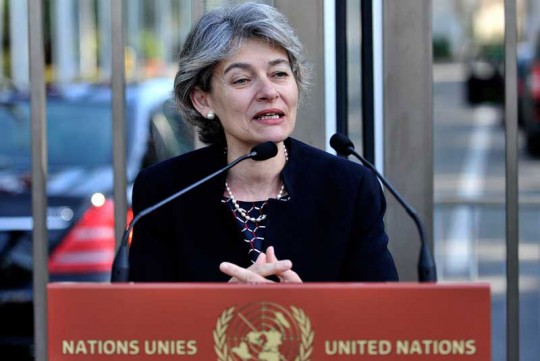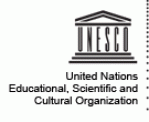Honduras: UNESCO chief deplores slaying of another journalist
Honduras: UNESCO chief deplores slaying of another journalist
 UNESCO Director-General Irina Bokova
UNESCO Director-General Irina Bokova
The head of the United Nations agency tasked with defending press freedom today voiced outrage at the murder of a radio journalist in Honduras, where at least 17 reporters have been slain since the start of last year.
Luz Marina Paz Villalobos, who worked with Cadena Hondureña de Noticias, and a man travelling with her in a car in the capital, Tegucigalpa, were shot dead on Tuesday by two men on a motorcycle.
The non-governmental organization (NGO) Reporters without Borders said that of the 17 journalists killed since the beginning of 2010, Ms. Paz Villalobos is the first woman.
In a statement, Irina Bokova, the Director-General of the UN Educational, Scientific and Cultural Organization (UNESCO), condemned the killing – the latest in “the all-too-long list of Honduran journalists murdered” – and urged authorities in the Central American country to protect freedom of expression.
“I call on the authorities to take urgent action to bring the culprits of these crimes to justice and protect the basic human right of freedom of expression,” she said. “Violence must not be allowed to stifle informed democratic debate and rule of law.”
UNESCO, which began operations in 1946, is specifically mandated to defend freedom of expression and press freedom.
###
About UN Educational Scientific and Cultural Organization (UNESCO)

UNESCO works to create the conditions for dialogue among civilizations, cultures and peoples, based upon respect for commonly shared values. It is through this dialogue that the world can achieve global visions of sustainable development encompassing observance of human rights, mutual respect and the alleviation of poverty, all of which are at the heart of UNESCO’S mission and activities.
The broad goals and concrete objectives of the international community – as set out in the internationally agreed development goals, including the Millennium Development Goals (MDGs) – underpin all UNESCO’s strategies and activities. Thus UNESCO’s unique competencies in education, the sciences, culture and communication and information contribute towards the realization of those goals.
UNESCO’s mission is to contribute to the building of peace, the eradication of poverty, sustainable development and intercultural dialogue through education, the sciences, culture, communication and information. The Organization focuses, in particular, on two global priorities:
- Africa
- Gender equality
And on a number of overarching objectives:
- Attaining quality education for all and lifelong learning
- Mobilizing science knowledge and policy for sustainable development
- Addressing emerging social and ethical challenges
- Fostering cultural diversity, intercultural dialogue and a culture of peace
- Building inclusive knowledge societies through information and communication
###
> United Nations (UN).
 The United Nations was established on 24 October 1945 by 51 countries committed to preserving peace through international cooperation and collective security. Today, nearly every nation in the world belongs to the UN: membership totals 192 countries.
The United Nations was established on 24 October 1945 by 51 countries committed to preserving peace through international cooperation and collective security. Today, nearly every nation in the world belongs to the UN: membership totals 192 countries.
When States become Members of the United Nations, they agree to accept the obligations of the UN Charter, an international treaty that sets out basic principles of international relations. According to the Charter, the UN has four purposes:
- to maintain international peace and security;
- to develop friendly relations among nations;
- to cooperate in solving international problems and in promoting respect for human rights;
- and to be a centre for harmonizing the actions of nations.
###
* The above story is adapted from materials provided by United Nations (UN)
** More information at United Nations (UN)




















